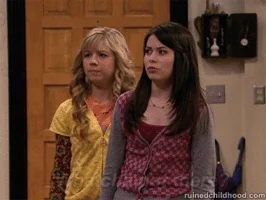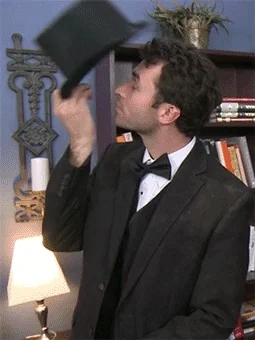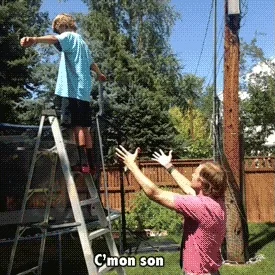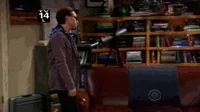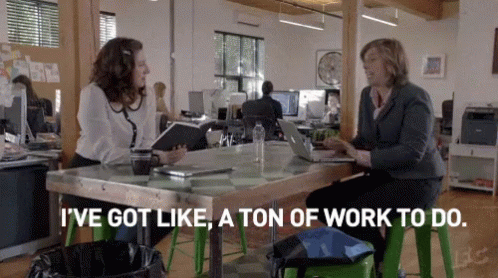Wow.
I can't believe I'm even able to write that title. I definitely never saw myself teaching at the college level (wow, again), even as an assistant. The things that I've done and learned this year in pedagogy have boggled my mind a little, and sometimes I don't know if I've learned more from my time in class on Tuesday nights or from my time at the front of the classroom. It's been nothing short of intimidating trying to use the thoughts and writings of so many great minds in my little classroom.
Now I have one week of classes left with my students, and I want to leave them with something really good. Something that will combine absolutely every single thing I have learned over this semester, like a giant perfect-pedagogy-communication-smoothie.
Ok, that's a little optimistic, but I do want to use this one last chance (until the spring) to use what I've learned this semester to benefit my students. In this last message on language, culture, and power, I want to leave them with a few things.
1. I want to encourage them. I want to let them know that their voice has power if they believe it does, and if they use the techniques that they've learned. I want to encourage them to keep learning, because someone who can only learn in a classroom isn't really learning at all.
2. I want to enlighten them. I want to at least begin to chip away at the iceberg of making them aware of the issues that they will face in the world, as well as the issues others around them will face that they may not see.
3. I want to equip them. I want them to have the tools they need to be rhetors for a better world. I would label these tools as: a curiosity about the world and communication, a compassion and empathy for the issues of others, and a competency with communication - how to construct a speech, get attention, build an argument, and spot rhetorical messages.
If I'm being honest with myself, not all of my students are going to leave my class with all of this. In fact, if I'm lucky, a few may walk out at the end of the semester with just a couple pieces. But I think I can live with that, as long as someone else can pick up the torch from there and keep helping my students build their knowledge and their world semester after semester. And, hey, I'm still pretty new at this. I'm only human. I know I won't be perfect at it...
Until next semester.
See all of you wonderful pedagogues in the spring.
#Highclass🎩
Thursday, November 29, 2018
Wednesday, November 28, 2018
That Slippery Thing Called Trust
Trust is a tricky thing. People say, "Do you trust me?" as though trust is an all-encompassing concept. I trust you not to poison my food, but I don't trust you to successfully perform heart surgery...
We have to trust students, and there are a lot of advantages that come from trusting them. If we don't trust students, they won't trust us, and if we do trust them, they will often try to live up to that trust. However, there are always those that will take advantage of it. This is why trust is a tricky balancing act. Putting trust in my students has come up far more often than I expected it to. Having no idea what to expect when I started the semester, I came in thinking this would be a fairly simple relationship. I should have known better, having been a student myself, but I was always pretty darn honest with my professors, so having to discern when to trust students and when to call bs wasn't really on my radar.
However, I recently checked my role sheet, found a student's name on it, and didn't see the student anywhere. I hadn't seen him come in at the beginning of class, but he sits at the back, so there was a chance that he had come in, signed it, and left. While the idea of that pissed me off, it was better in my mind at least than the only other alternative I saw, which was that someone else was signing in for him. I scratched his name off the list and sent him a warning email after class. He claimed that no one else was signing in for him, and I warned him not to sign in anymore unless he planned to stick around. And finally, I told him I trusted him not to do it again. That doesn't mean that I wasn't still checking the role sheets, but I truly didn't expect to see any problems anymore.
And I didn't. In fact, while I expected to see neither him nor his name (as his attendance record had been pretty miserable) he actually started showing up to class more regularly after that and started sticking around. Now that the media analysis papers are in, I have a lot of high plagiarism scores, and my ability to walk the fine, slippery line of trust with my students is going to be tested all over again.
However, I recently checked my role sheet, found a student's name on it, and didn't see the student anywhere. I hadn't seen him come in at the beginning of class, but he sits at the back, so there was a chance that he had come in, signed it, and left. While the idea of that pissed me off, it was better in my mind at least than the only other alternative I saw, which was that someone else was signing in for him. I scratched his name off the list and sent him a warning email after class. He claimed that no one else was signing in for him, and I warned him not to sign in anymore unless he planned to stick around. And finally, I told him I trusted him not to do it again. That doesn't mean that I wasn't still checking the role sheets, but I truly didn't expect to see any problems anymore.
And I didn't. In fact, while I expected to see neither him nor his name (as his attendance record had been pretty miserable) he actually started showing up to class more regularly after that and started sticking around. Now that the media analysis papers are in, I have a lot of high plagiarism scores, and my ability to walk the fine, slippery line of trust with my students is going to be tested all over again.
#Highclass 🎩 #Zettelthiswithwords
Reflexivity at 80 MPH
 Like many of us, I drive to school. The difference is that between school and
home, I roll up between 400 and 500 miles a week on The Bunny (that’s my car’s
name). I said “roll up” because I have
an old timey sense of cars and still think they have rolling odometers.
Like many of us, I drive to school. The difference is that between school and
home, I roll up between 400 and 500 miles a week on The Bunny (that’s my car’s
name). I said “roll up” because I have
an old timey sense of cars and still think they have rolling odometers.
This unholy FUCK of a drive costs me from 10 to 12 hours a
week. 10 to 12 hours a week that
I can’t spend reading, writing, or prepping.
When y’all think you’re tired, I am more
tired. Nothing could be more worth it
than my education; my “way up”.
The Bunny’s a quick little beast, too. Close to me, protective, loyal, trustworthy. I have cried more tears and felt more
feelings within the confines of my little car than any other ride of my life. I just show her the key and she’s ready to go—vroom!!
Seeing the Speed Limit “70” sign creep by at less than five miles
per hour during rush hours is a disheartening sight. Glowing red
tail lights stretching PAST the horizon.
I’ve seen some things. These are actual photos from my commutes this semester and that's a screenshot of an afternoon it took 47 minutes to drive the last 13 miles to my home. FUCKED.
Road time teaches me about negotiation; a learned and earned
skill. I can spot “late behaviors” like
speeding and tailgating for what they are—panics. I remember engaging in late behaviors and
being white-knuckle afraid of losing my job if I was late. #pleasedon’t
All that time alone on the road is my time for reflexivity—about
my teaching and my own studies. I was
angry about commuting, but now that I’m relocating to Denton, it seems better—at
least in my mind. Somehow, through the
grace of my inner-self (which I am discovering); I realized, “If I am hard on
myself, it will only make things HARDER ON MYSELF.” It was like an epiphany. “Epiphy-what?”
 I could feel my shoulders immediately melting down away from
my ears. My neck returned to its
vertical position, back from the assumed attentive, craned-forward posture. The end is near—only 529 days till graduation—assuming
the Spring 2020 cohort walks the stage on May 9, 2020.
I could feel my shoulders immediately melting down away from
my ears. My neck returned to its
vertical position, back from the assumed attentive, craned-forward posture. The end is near—only 529 days till graduation—assuming
the Spring 2020 cohort walks the stage on May 9, 2020.
#fromthefrontdesk
Tuesday, November 27, 2018
Turning the Wheels with Pop Culture
Engaging students has been the most difficult task for me to overcome in my first semester of teaching. I try to present new concepts with energy and excitement, but almost every student in the class looks like they are waiting out the clock. The few times that I can see their eyes spark up is when I bring something new into the class atmosphere, and using pop culture that they know and recognize enhances the effect even further. I've tried to tap into a little bit of this interest with the questions on my sign in sheets. Answering a question about their favorite tv show to binge helps pull their mind up from when-is-this-class-going-to-be-over mode. Sometimes I've been able to lead these questions into my lessons which has always caught a positive response.
I realized too late that I had not been utilizing this tool enough, though. I took a page from Rowdy's book after watching his class, and played some advertisements for my students to analyze. That was my best class. Even though they hadn't seen the ads before, and even though they didn't particularly like them, it resonated with them as relevant and important, and I hadn't yet seen my students so engaged. Early in the semester it felt like I had so much to fit in and so little time to do it, and I was afraid that anything I was bringing in was detracting from precious learning time, but now I wish that I could go back and start taking a bit of time each class to give the students some pop culture fragment to lead them into the lesson, because I've found that the interest it sparks can carry over for a whole class (or at least most of it.) Just a taste of something from their out-of-class world could keep their gears turning for quite a while, and I was able to redirect some of that interest and energy toward learning communication.
Next semester I am going to challenge myself to take something entertaining from the front page of reddit, imgur, or youtube every day of class, present it at the beginning, and find a way to work it into the lesson for the day.
#Highclass 🎩
I realized too late that I had not been utilizing this tool enough, though. I took a page from Rowdy's book after watching his class, and played some advertisements for my students to analyze. That was my best class. Even though they hadn't seen the ads before, and even though they didn't particularly like them, it resonated with them as relevant and important, and I hadn't yet seen my students so engaged. Early in the semester it felt like I had so much to fit in and so little time to do it, and I was afraid that anything I was bringing in was detracting from precious learning time, but now I wish that I could go back and start taking a bit of time each class to give the students some pop culture fragment to lead them into the lesson, because I've found that the interest it sparks can carry over for a whole class (or at least most of it.) Just a taste of something from their out-of-class world could keep their gears turning for quite a while, and I was able to redirect some of that interest and energy toward learning communication.
Next semester I am going to challenge myself to take something entertaining from the front page of reddit, imgur, or youtube every day of class, present it at the beginning, and find a way to work it into the lesson for the day.
#Highclass 🎩
Acting on Activism
Hi y'all!
If you're close to me, you know activism is something I've been passionate about for a long time.
 I interned as a social justice research intern for a non-profit who's main goal was to fight against
I interned as a social justice research intern for a non-profit who's main goal was to fight against
police brutality, and knowing that I was involved in trying to make a change gave me a sense of fulfillment that not much else has. I believe this real world and hands-on experience A.K.A putting my money where my mouth was, helped enhance my education in so many invaluable ways.
In Enck's chapter, I loved how she said she was drawn to CAP, because of its commitment to having students involved in first person activism. I was especially excited by her bringing up service learning, because its something that I'm most passionate about and hope to be involved in and have my students involved in as well in the future. Knowing you possess the power to change the world for the better through your actions is something I know ignites excitement for many of us. This is where activism can be initiated, leading into creating real change.
Before I found my place in the COMM department, I was a Psychology/ Sociology major. One of my Sociology classes was called social issues. In this class we were required to have an entire service learning project that we did throughout the semester. We had to have 12 hours with a local organization and actually volunteer and help with issues we cared about. I chose to volunteer at a hospice and elderly home, because during that time in my college career, I had learned about the lack of interaction they received with people who did not work at the facility. I did not initially think my life would be changed as much as it did after that first day.

I got to actually spend time and learn from the people that I hoped to help. Having a sense of agency and not just 'sitting around' and being sad with no actual action. This experience enhanced my life in multiple ways, so much so that I continued volunteering at that hospice for years after that class ended before I moved away. Feeling fulfilled and understanding that I can make the change and affect people in a positive way through positive actions made me feel like I was in the right space. I think having hands on work and activism is a vital aspect in the academic sphere. It allows students to have interaction with all that they read, learn, and research about. Putting the 'academic' sphere and their 'personal' sphere together in activism allows connections to be made that will benefit their overall educational experience.
My #lightningboldt is that service learning is something that I hope to implement in classes that I may teach in the future and also classes that I may be enrolled in as a student.
Do you guys have any service learning experiences you feel that you've benefitted from?
If you're close to me, you know activism is something I've been passionate about for a long time.
 I interned as a social justice research intern for a non-profit who's main goal was to fight against
I interned as a social justice research intern for a non-profit who's main goal was to fight against police brutality, and knowing that I was involved in trying to make a change gave me a sense of fulfillment that not much else has. I believe this real world and hands-on experience A.K.A putting my money where my mouth was, helped enhance my education in so many invaluable ways.
In Enck's chapter, I loved how she said she was drawn to CAP, because of its commitment to having students involved in first person activism. I was especially excited by her bringing up service learning, because its something that I'm most passionate about and hope to be involved in and have my students involved in as well in the future. Knowing you possess the power to change the world for the better through your actions is something I know ignites excitement for many of us. This is where activism can be initiated, leading into creating real change.
Before I found my place in the COMM department, I was a Psychology/ Sociology major. One of my Sociology classes was called social issues. In this class we were required to have an entire service learning project that we did throughout the semester. We had to have 12 hours with a local organization and actually volunteer and help with issues we cared about. I chose to volunteer at a hospice and elderly home, because during that time in my college career, I had learned about the lack of interaction they received with people who did not work at the facility. I did not initially think my life would be changed as much as it did after that first day.

I got to actually spend time and learn from the people that I hoped to help. Having a sense of agency and not just 'sitting around' and being sad with no actual action. This experience enhanced my life in multiple ways, so much so that I continued volunteering at that hospice for years after that class ended before I moved away. Feeling fulfilled and understanding that I can make the change and affect people in a positive way through positive actions made me feel like I was in the right space. I think having hands on work and activism is a vital aspect in the academic sphere. It allows students to have interaction with all that they read, learn, and research about. Putting the 'academic' sphere and their 'personal' sphere together in activism allows connections to be made that will benefit their overall educational experience.
My #lightningboldt is that service learning is something that I hope to implement in classes that I may teach in the future and also classes that I may be enrolled in as a student.
Do you guys have any service learning experiences you feel that you've benefitted from?
'cause you're a good girl and you know it
Howdy folks!
 I felt like this article was almost directly speaking to me in so many ways, because I found myself not often offering the original ideas I had though of in class. When I did participate, it often focused on agreeing with a statement before me, or following on the same track someone else brought up. Looking back on this version of myself, it makes me sad to see I didn't find value in my own ideas and contributions.
I felt like this article was almost directly speaking to me in so many ways, because I found myself not often offering the original ideas I had though of in class. When I did participate, it often focused on agreeing with a statement before me, or following on the same track someone else brought up. Looking back on this version of myself, it makes me sad to see I didn't find value in my own ideas and contributions.
So, the Bell and Golombisky article really had me reevaluating my entire academic experience.
Throughout my life, I have been very extroverted in my "outside" life, but in academic settings, I always tended to be more reserved. It felt like I needed to be silent and listen to please those who I believed actually had the knowledge to speak on a topic. I knew I had a need to please figures of authority and always assumed being quiet and listening to them speak would enhance my educational experience. I've been driven to not make anything less than an A, and if I received a B, I was my harshest critic. The story in the article about the girl coming into the teacher's office and crying because she got a C really resonated with me. My parents would try and coax my worries and say "A 'B' is still good!", but to me, it wasn't good enough.
 I felt like this article was almost directly speaking to me in so many ways, because I found myself not often offering the original ideas I had though of in class. When I did participate, it often focused on agreeing with a statement before me, or following on the same track someone else brought up. Looking back on this version of myself, it makes me sad to see I didn't find value in my own ideas and contributions.
I felt like this article was almost directly speaking to me in so many ways, because I found myself not often offering the original ideas I had though of in class. When I did participate, it often focused on agreeing with a statement before me, or following on the same track someone else brought up. Looking back on this version of myself, it makes me sad to see I didn't find value in my own ideas and contributions.
I'm still working on being comfortable with interrupting other people, or realizing that my voice has the same value as everyone else in the class. I've become more comfortable with asserting myself and my opinions in an academic setting in the later part of my undergrad, and now in grad school, but I still have trouble finding my place in the class and when it comes to speaking up.
During my time as an instructor, I have seen some of my students act in a way reminiscent of my younger self. My mission as their instructor is to allow them the space to speak and contribute their own ideas. The pay-to-speak in class strategy is something I really hope to implement in the future for classes where there is a certain student, or few students monopolizing the conversation. I also hope to invite some of the quieter students, probably girls, to offer ORIGINAL ideas that are not based on agreeing with someone else.
My #lightningboldt this week was to see how much I've grown in my academic life. I'm proud of the students and instructor I've become now being more comfortable with my abilities in both scenarios. Do you think you would ever use the pay-to-speak and talking tallies in your classroom, why or why not?
lightningboldt OUT!!
Closing Time
Well, folks! It's the end of the semester! We're two-point-five weeks out from our last day of our first semester (Sarah, Garrett, and Shannon's first YEAR), and I've learned so much!
While I don't think I've completely figured out my pedagogy just yet, I've got a pretty good basis. I've been practicing the things I resonate with in our readings. For example!!
I am so swamped with homework and papers to write and articles to read and I feel like I have no time for anything! But I also have so much to grade. I prided myself at the beginning of the semester for keeping a good turnaround time on grades - even though I've got 50 students in 2140 delivering speeches for me to watch and grade, as well as 10 students in 3010 submitting poorly edited 10 page papers every two-ish weeks. But I was managing!! Until No-Time November hit, and then I felt like an 18-wheeler slammed into me.
#TaleFromTheHall time! I told my students it would take me some time to get through all 50 of their 5-7 minute speeches, as I've gotten a little behind and have my own things to do to ensure I can continue to attend grad school. TRANSPARENCY and VULNERABILITY. Sometimes it works, sometimes it doesn't - but it does help ease some of the pressure. I had most of my students tell me not to sweat it and that they could wait for those grades (I think they were worried about them), and then I have some students who think I can't hear them say that they wish I would just hurry up and grade already.
But for the most part, the students have been very understanding and appreciative of my honesty and transparency with them, which is nice. I've also been taking care to really prop up and support the few of my students who haven't felt the need to tell me that they're "just here for the grade", by telling these students how smart they are and encouraging them to keep working and producing great work. I've even recommended a few to look into grad school to keep their spark ignited.
I'm so excited watching these brilliant students learn and find passion in what we're teaching them. I remember those feelings vividly and I want to support others who feel them too. I think this is one of the most important things we can do as teachers. Keep encouraging those students who want to be here, and try to reach those who think they don't want to be here. Help them find their passion. Be the friendly face. I had professors who did this for me, and now I can do this for others and #SoCanYou.
Laters, baby
Kassie
While I don't think I've completely figured out my pedagogy just yet, I've got a pretty good basis. I've been practicing the things I resonate with in our readings. For example!!
I am so swamped with homework and papers to write and articles to read and I feel like I have no time for anything! But I also have so much to grade. I prided myself at the beginning of the semester for keeping a good turnaround time on grades - even though I've got 50 students in 2140 delivering speeches for me to watch and grade, as well as 10 students in 3010 submitting poorly edited 10 page papers every two-ish weeks. But I was managing!! Until No-Time November hit, and then I felt like an 18-wheeler slammed into me.
#TaleFromTheHall time! I told my students it would take me some time to get through all 50 of their 5-7 minute speeches, as I've gotten a little behind and have my own things to do to ensure I can continue to attend grad school. TRANSPARENCY and VULNERABILITY. Sometimes it works, sometimes it doesn't - but it does help ease some of the pressure. I had most of my students tell me not to sweat it and that they could wait for those grades (I think they were worried about them), and then I have some students who think I can't hear them say that they wish I would just hurry up and grade already.
But for the most part, the students have been very understanding and appreciative of my honesty and transparency with them, which is nice. I've also been taking care to really prop up and support the few of my students who haven't felt the need to tell me that they're "just here for the grade", by telling these students how smart they are and encouraging them to keep working and producing great work. I've even recommended a few to look into grad school to keep their spark ignited.
I'm so excited watching these brilliant students learn and find passion in what we're teaching them. I remember those feelings vividly and I want to support others who feel them too. I think this is one of the most important things we can do as teachers. Keep encouraging those students who want to be here, and try to reach those who think they don't want to be here. Help them find their passion. Be the friendly face. I had professors who did this for me, and now I can do this for others and #SoCanYou.
Laters, baby
Kassie
Monday, November 26, 2018
The Confessional Narratives: A Critical Intervention
 Until I came to UNT, I was the
product of a semi-rural, traditional, conservative Texas education. I learned and knew my role exceptionally well: good attendance and grades (except when I
rebelled), speaking when called upon in church and school (for the most part),
and minding my manners (usually). Comply now, complain later. Docile.
Colonized.
Until I came to UNT, I was the
product of a semi-rural, traditional, conservative Texas education. I learned and knew my role exceptionally well: good attendance and grades (except when I
rebelled), speaking when called upon in church and school (for the most part),
and minding my manners (usually). Comply now, complain later. Docile.
Colonized.
I went to UNT for my
undergraduate—100% online. UNT’s
Bachelor of Applied Arts and Sciences was a good option for me after working in
government and big show business. Theory
and the social sciences set me free. This
is my first semester on a college campus since 2009, but I’d been to Denton
before. In my past life as a Jehovah’s
Witness, I helped build that big Assembly Hall out on 380, west of Denton (14542 US-380,
Krum, TX 76249). I knew “Little
D” was like Waco (where I grew up), but with jazz. Long before Magnolia.
I feel like a refugee in college. I’m here to get my future right; to open
doors that would have otherwise been barred by educational requirements at
future jobs I already want. Education is
my “way up”.
On arriving to campus, I immediately
noticed the jarring contrast of the effects of UNT’s liberal education, and the
protracted effects of traditional, conservative education. I consistently observe that materially
privileged students from non-liberal collegiate backgrounds can be dangerously oblivious to their colonialist
tendencies. They stand around inspecting, as if surveying a future colony; getting my attention and
delaying the question; loudly asking too-personal questions and not listening
to the answer. All while withholding eye contact. The strangest, disturbingly fucking
bizarre interpersonal communication of my entire life.
 I will, however, proffer that UNT’s neo-imperialists may be too naïve and inexperienced to
understand that their behaviors oppress others.
They may not perceive themselves as behaving unethically due to their
tremendous lack of self-awareness. Their
lived experiences may not have taught them any degree of social finesse. Perhaps they’ve never been challenged in
their narrow world view, and simply cannot understand that communicative
humility will serve them much better than petulant entitlement.
I will, however, proffer that UNT’s neo-imperialists may be too naïve and inexperienced to
understand that their behaviors oppress others.
They may not perceive themselves as behaving unethically due to their
tremendous lack of self-awareness. Their
lived experiences may not have taught them any degree of social finesse. Perhaps they’ve never been challenged in
their narrow world view, and simply cannot understand that communicative
humility will serve them much better than petulant entitlement.
I am the redeeming voice that was
stolen from my enslaved and converted ancestors, yet I silence myself in
classroom settings where I believe my ideas will be appropriated—real talk: stolen!
This is not imaginary. It has
already happened to me this semester!
What would bell hooks say? I believe she would encourage me to name my
pain and tell me to stop being complicit in my own domination. She offers me deep comfort in Teaching to
Transgress:
 “Fear and anger about
appropriation…have led black [and brown] women to withdraw from feminist
settings where we must have extensive contact with white women. Withdrawal exacerbates the problem: it
makes us complicit in a different way (p 105).
Painfully clear biases...distort education so that it is no longer about
the practice of freedom (p. 29). Though
the call for sisterhood [is] often motivated by sincere longing to transform
the present…there [is] no attempt to acknowledge history, or the barriers that
might make such bonding difficult, if not impossible” (p. 102).
“Fear and anger about
appropriation…have led black [and brown] women to withdraw from feminist
settings where we must have extensive contact with white women. Withdrawal exacerbates the problem: it
makes us complicit in a different way (p 105).
Painfully clear biases...distort education so that it is no longer about
the practice of freedom (p. 29). Though
the call for sisterhood [is] often motivated by sincere longing to transform
the present…there [is] no attempt to acknowledge history, or the barriers that
might make such bonding difficult, if not impossible” (p. 102).
Belonging is a verb. Belonging begins with extending basic
courtesies and continues through reciprocity.
Become humbly aware of
how your words and actions affect the marginalized other.
Please do not minimize
experiences you haven’t lived.
Subscribe to:
Comments (Atom)
